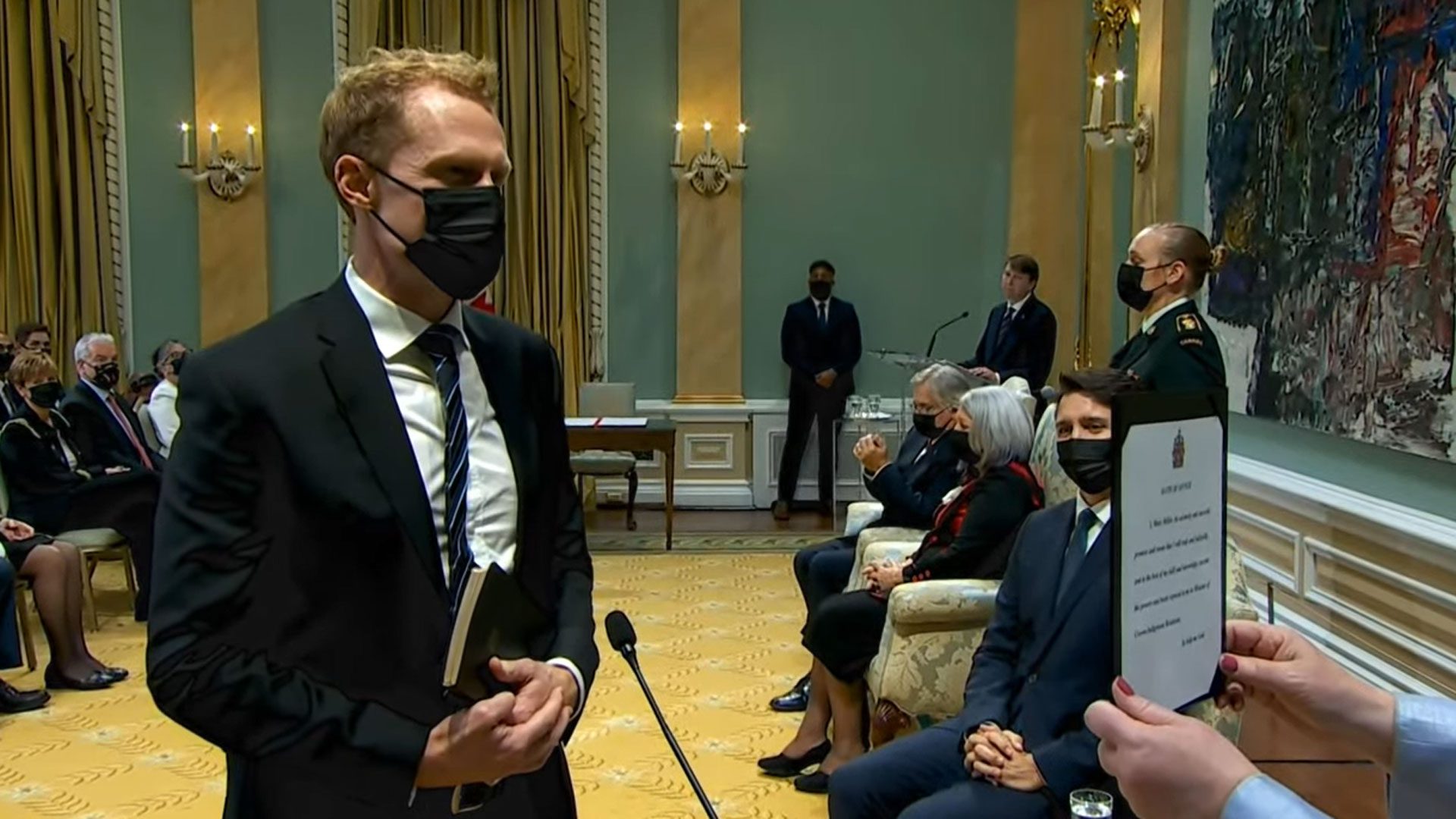Since being sworn in as minister of Crown-Indigenous relations, Marc Miller has vowed to change tack on land claims, release thousands of residential school records and pay $40 billion to settle long-standing child welfare litigation.
The pledges have raised cautious optimism and some serious skepticism. Nation to Nation caught up with the minister outside the House of Commons in Ottawa where he laid out his plan to deliver.
“We’re talking about historical compensation that goes back 30 years,” said Miller on the subject of child welfare. “This is 30 years of failure that is quite costly to repair. But this is the just way to go, and we’re willing to walk that path.”
It was on April 1, 1991 that the Crown established the modern First Nations child-welfare system by releasing its national policy statement known as Directive 20-1. The flawed and racist policy ensured child and family services on reserves and in the Yukon would be chronically underfunded for decades, leaving tens of thousands of families shattered.
The federal government has been fighting and losing a human rights complaint over it for about half that time. The complaint will mark 15 years in February 2022, though confidential negotiations to resolve it before the grim anniversary are creeping closer to settlement.

But Indian Affairs, as the department was known, had been pushing harmful policies for many more years than that. Both the Truth and Reconciliation Commission and the National Inquiry into Missing and Murdered Indigenous Women and Girls (MMIWG) deemed those policies genocidal.
Miller served as Carolyn Bennett’s parliamentary secretary shortly after the department was halved, and he was appointed minister of Indigenous services shortly after.
He moved laterally when Prime Minister Justin Trudeau announced his third cabinet. Residential school document disclosure was one of the first files to land on Miller’s desk.
Speaking on Tk’emlúps te Secwepemc territory, Trudeau claimed that Canada already released all records it possessed. The National Centre for Truth and Reconciliation (NCTR) swiftly denounced the false statement. Miller later announced 12,000 more documents were en route.
“I asked my department to go through what items we had that we were still withholding,” he said. “We fell on a category of documents that were simply unacceptable from the federal government’s perspective to hang on to. That was documents that we were holding back but for consent from a number of Catholic entities.”
He also announced an “extensive internal review” to probe for others. Numerous records remain undisclosed because the country’s top court ordered the feds to withhold and eventually destroy them.
As part of the compensation process survivors filed forms recounting horrific and traumatic instances of physical and sexual abuse. The Supreme Court of Canada ruled those files must remain confidential, said Miller. Unless the individual claimant consents to their release, they have to be shredded.
Read more
Grand chief in B.C. says Trudeau should ‘resign’ over residential school records comment
Federal government to release more residential school documents: Miller
Many found the prospect of destroying that sort of historical evidence concerning. But it’s what the high court ordered, and Miller said his department is weighing its options as the deadline to scrap the files approaches.
“We need to proceed to an area where we are preserving the evidence, but disclosing them is another set of considerations,” he said. “We have to consider not only the confidentiality of the people in question but also the need for closure for victims.
“Canada has invoked those principles too broadly at times, and it’s something I want to review with our legal team.”
Meanwhile, the government took heat for missing its own deadline to fulfill the first recommendation of the MMIWG inquiry, which was to draw up an action plan.
The action plan is in place, but now Indigenous people wait for the implementation plan. While he pointed to billions in the budget, Miller didn’t say how many calls to justice have been completed.
He also raised eyebrows only hours after assuming his new post when he proclaimed, “It’s time to give land back.”
N2N asked him how he plans to do it.
“Often we’ve just offered money where there is not land available, and we’ve been less creative in the work that we’ve been doing,” he said. “It goes squarely into the current mechanisms we have, which is the additions to reserve policies and the process that has been, we have to admit, slow.”
And with 2022 on the horizon the Liberals announced plans to move forward with their law on the UN Declaration on the Rights of Indigenous People, the former Bill C-15. It requires Ottawa to harmonize federal laws with the declaration.
“People should expect this to be messy,” Miller said when asked what those reforms will look like. “There are hundreds and hundreds of laws that need examination.”











